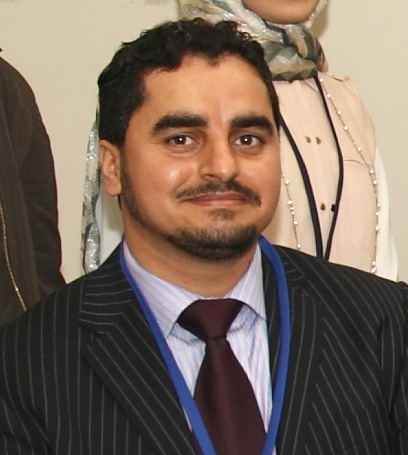Countries of the Gulf Cooperation Council (GCC) – Bahrain, Kuwait, Oman, Qatar, Saudi Arabia, the United Arab Emirates and Yemen – are facing unparalleled and unprecedented demands for health services. These demands will increase during the next decades due to increase of population as well as due to social, economic, and demographic changes that are taking place in the region. Meeting such demands will pose great challenges for the healthcare systems of GCC countries. Planning, organizing, and financing healthcare systems are complicated tasks that require crucial decisions regarding better healthcare policies. This is further complicated by the fact that GCC countries are witnessing high growth rate of population, sedentary lifestyles, increases in chronic diseases, unstable economy, shortage of qualified manpower, etc. All these demands and challenges will require the development of healthcare policies that lead to efficient and effective healthcare delivery to all populations.
3 DAYS / 12 Workshops
MORE THAN 300 ACADEMIC PAPERS
Countries of the Gulf Cooperation Council (GCC) – Bahrain, Kuwait, Oman, Qatar, Saudi Arabia, the United Arab Emirates and Yemen – are facing unparalleled and unprecedented demands for health services. These demands will increase during the next decades due to increase of population as well as due to social, economic, and demographic changes that are taking place in the region. Meeting such demands will pose great challenges for the healthcare systems of GCC countries. Planning, organizing, and financing healthcare systems are complicated tasks that require crucial decisions regarding better healthcare policies. This is further complicated by the fact that GCC countries are witnessing high growth rate of population, sedentary lifestyles, increases in chronic diseases, unstable economy, shortage of qualified manpower, etc. All these demands and challenges will require the development of healthcare policies that lead to efficient and effective healthcare delivery to all populations. The main aim of this workshop is to explore the healthcare policies in GCC countries, challenges facing healthcare systems in the region, and future directions for such systems. Outcomes of this workshop will help decision-makers in the region’s healthcare sectors to better understand and develop appropriate healthcare policies. It is estimated that total healthcare spending in the region will reach $60 billion by 2025. No other region in the world faces such rapid growth in demand with the simultaneous need to realign its healthcare systems to be able to treat the disorders of affluence. Although there has 2 been major investment in the healthcare system in the GCC, many residents remain unsatisfied with the availability and quality of care at government-run hospitals and clinics. While the healthcare system is mainly run by the government, government agencies mostly lack strategies and policies as well as the managerial skills needed to run healthcare facilities. Therefore, government-run healthcare centres (hospitals and clinics) are ill-prepared for a rapidly growing and aging population, nor are they prepared for the rise in chronic diseases such as diabetes, whose prevalence has grown as countries have developed (Figure 1). The recent paradigm shift in lifestyle and rising per capita incomes have led to the consumption of unbalanced diets and a more sedentary lifestyle in the GCC, thereby aggravating the prevalence of lifestyle ailments such as diabetes and cardiovascular diseases. The UAE ranks second highest in the world for diabetes prevalence (20 percent), followed by Saudi Arabia (16.7 percent), Bahrain (15.2 percent) and Kuwait (14.4 percent), according to the International Diabetes Federation. Higher incidence of lifestyle diseases translates into higher per capital healthcare cost, as the average treatment cost in the case of lifestyle-related ailments is higher than other hospitalized cases. Moreover, the rising population coupled with ageing demographic pattern is expected to drive healthcare demand in the GCC. The GCC population growth has averaged 3 percent per annum over the past five years, among the highest growth rates in the world (Figure 2). Moreover, the average life expectancy across the region has risen from 60 years in the late 1970s to 75 years primarily due to various health reforms. The sharp population growth is set to be accompanied by a shift in the demographic structure of the region over the next 20 years, as the young population ages. The current average age in the Gulf ranges from 23 to 31 years; however, the proportion of population above 60 years of age will increase as Gulf baby boomers born during the region's first oil price boom become pensioners. This will generate significant healthcare demand; according to health experts, four-fifths of a person's healthcare needs typically occur during the post retirement age. Another emerging issue in the GCC is healthcare insurance. Most GCC countries are framing legislative policies to mandate employers to provide basic healthcare services, including insurance, to their expatriate employees. The expatriate workforce forms about 40–80 percent of the total population of the GCC countries. With Saudi Arabia being the first GCC country to mandate medical insurance to expatriates in 2006, the health insurance industry is predicted to grow to include GCC citizens boosted by the lack of healthcare quality.
